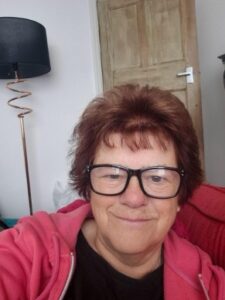Electroconvulsive Treatment (ECT)
Yvonne

I am a 65 year old mum from Leeds. My film is about my 25 year old daughter, Amali, who has Asperger’s Syndrome and a learning disability.
It depicts a typical day of our lives when she was younger, preparing for the school day and transport from the moment the alarm goes off.
I think all our films were vital in highlighting the stresses carers face on a daily basis with their loved ones, from being young to them becoming adults.
Projects like this one promote empathy, grief and resilience in equal measure, so thank you for that.
Carers are definitely stronger together and our voices need to be heard.
Copyright © 2024 University of Oxford. All rights reserved.


